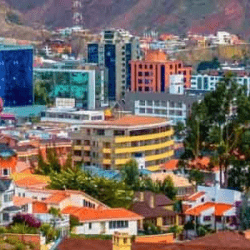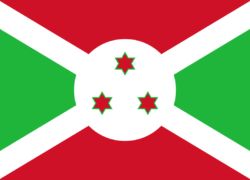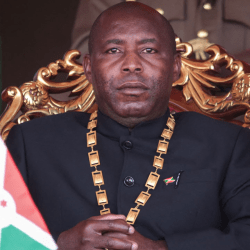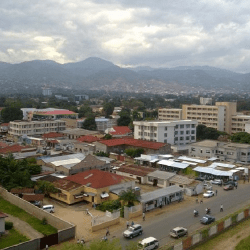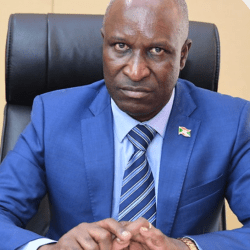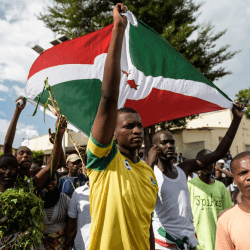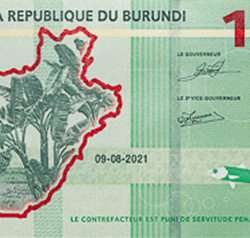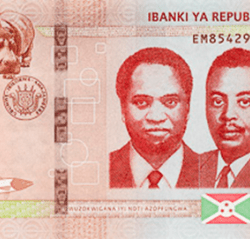Pharmacies in Burundi
| Pharmacie de la Mutuelle Avenue des Etats-Unies Tel: 257 22-7661 | Pharmacie du Lac Chaussée Prince Louis Rwagasore Tel: 257 22-5723 |
| Pharmacie Inter-Lacustre Avenue Patrice Lumumba Tel: 257 21-4843 | Pharmacie de la Concorde AVenue du Zaire Tel: 257 21-4558 |
| Pharmacie de la Permanance Place de l’Indépendance Tel: 257 21-3081 | Pharmacie le Capitan Chaussée Prince Louis Rwagasore Tel: 21-3906 |
| Pharmacie Neopharma Chaussée Prince Louis Rwagasore Tel: 22-2626 | Pharmacie Socophar Avenue du commerce Tel: 257 22-6056 |
| Pharmacie Sidiphar Avenue de la Croix Rouge Tel: 257 22-3600 | Pharmacie Sulfils Chaussée Prince Louis Rwagasore Tel: 257 21-4729 |
| Pharmacie Unipharma Chaussée Prince Louis Rwagasore Tel: 257 22-9049 | Pharmacie “La Reference” Boulevard de l’Uprona Tel: 257 22-0035 |
| Pharmacie de la Galerie Chaussée Prince Louis Rwagasore Tel: 257 23-3082 |
Burundi
Burundi is a country in East Africa. It is bounded by Rwanda to the north, Tanzania to the east and south, Lake Tanganyika to the southwest, and the Democratic Republic of the Congo to the west.

- Capital: Gitega (political), Bujumbura (economic)
- Area: 27,834 sq km
- Population: 11.8 million
- Languages: Kirundi, French, English



In 2019 the capital moved to Gitega, although Bujumbura remains the commercial capital.




Burundi is divided into 18 provinces, 119 communes and 2,638 collines (hills). Provincial governments are structured according to these boundaries.
List of 18 provinces of Burundi
- Cankuzo
- Gitega
- Rutana
- Ruyigi
- Karuzi
- Kayanza
- Kirundo
- Muyinga
- Ngozi
- Bururi
- Makamba
- Rumonge
- Bubanza
- Bujumbura Mairie
- Bujumbura Rural
- Cibitoke
- Muramvya
- Mwaro
Burundi provinces according to zone
• Eastern Burundi
Cankuzo
Gitega
Rutana
Ruyigi
• Northern Burundi
Karuzi
Kayanza
Kirundo
Muyinga
Ngozi
• Southern Burundi
Bururi
Makamba
Rumonge
• Western Burundi
Bubanza
Bujumbura Mairie
Bujumbura Rural
Cibitoke
Muramvya
Mwaro
The country has many ethnic groups but the 3 main ones are: Hutu, Tutsi and Twa.
Hutu is the majority while Tutsi, a dominant minority.
After independence in 1962 Burundi was heavily troubled by periodic, violent tensions between Tutsi and Hutu.
A civil war, sparked off in 1993, made Burundi the scene of one of Africa’s most intractable conflicts.
Burundi, one of the world’s poorest nations, is struggling to emerge from a 12-year, ethnic-based civil war.













Majority of Burundi’s population is Hutu. Power, however, has long rested with the Tutsi minority, which had long controlled the army and most of the economy, particularly the lucrative coffee exports.
Few real cultural differences are distinguishable between the two peoples, and both speak Rundi (Kirundi). Such linguistic homogeneity is rare in sub-Saharan Africa and emphasizes the close cultural and ethnic ties among the peoples in Burundi.
Even so, ethnic conflict between the Hutu and Tutsi has plagued the country for decades in the past.
Neither the presence of an international peacekeeping force nor the ratification of an agreement to share power between Hutu and Tutsi were immediately effective in curbing interethnic violence that also spilled into the neighbouring countries of Rwanda and the Democratic Republic of the Congo.
Burundians have been thereafter faced with the task of quelling ethnic dissent, promoting unity, and rebuilding the country.
Burundi ranks among the poorest countries globally. Economic instability, political unrest, and reliance on subsistence agriculture contribute to its economic struggles.
The country has an underdeveloped manufacturing sector.
Government corruption and incompetence hinder development of a prosperous private sector as companies seek to navigate an environment with ever-changing rules.
The economy is predominantly agricultural employing more than 80% of the population.
Burundi’s primary exports are coffee and tea, which account for a large part of foreign exchange earnings.
Other agricultural products include maize, sorghum, sweet potatoes, bananas, manioc (tapioca); beef, milk and hides.
Even though subsistence farming is highly relied upon, many people do not have the resources to sustain themselves.
This is due to large population growth and no coherent policies governing land ownership. In 2014, the average farm size was about one acre.
Besides agriculture, other industries include: assembly of imported components; public works construction; food processing and light consumer goods such as blankets, shoes and soap.
Some of Burundi’s natural resources include uranium, nickel, cobalt, copper and platinum.
The country is home to rich cultural and natural diversity, with various languages, religions, traditions, and wildlife.
It is a member of several regional and international organizations, such as the African Union, the East African Community, the United Nations, and the Francophone.
